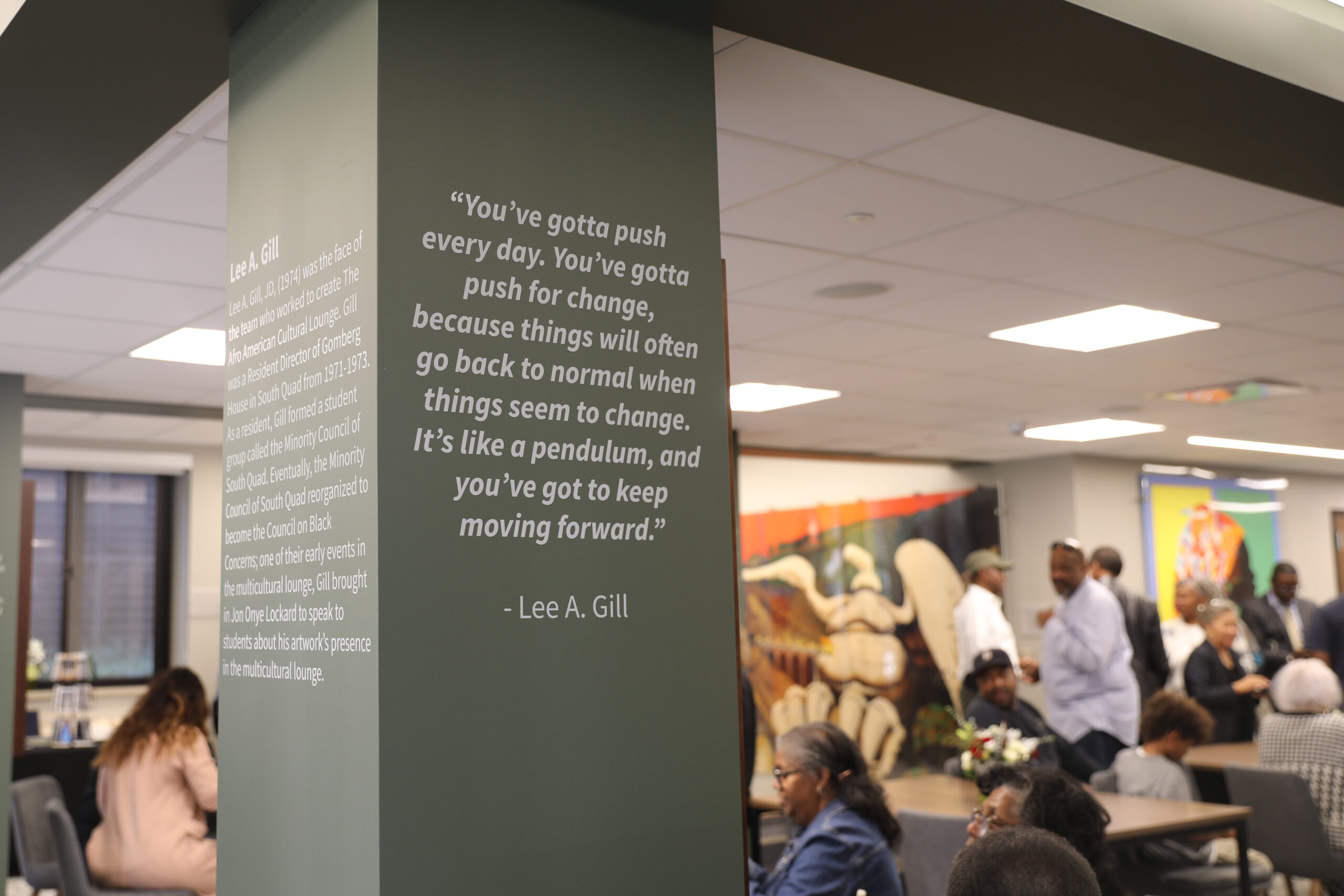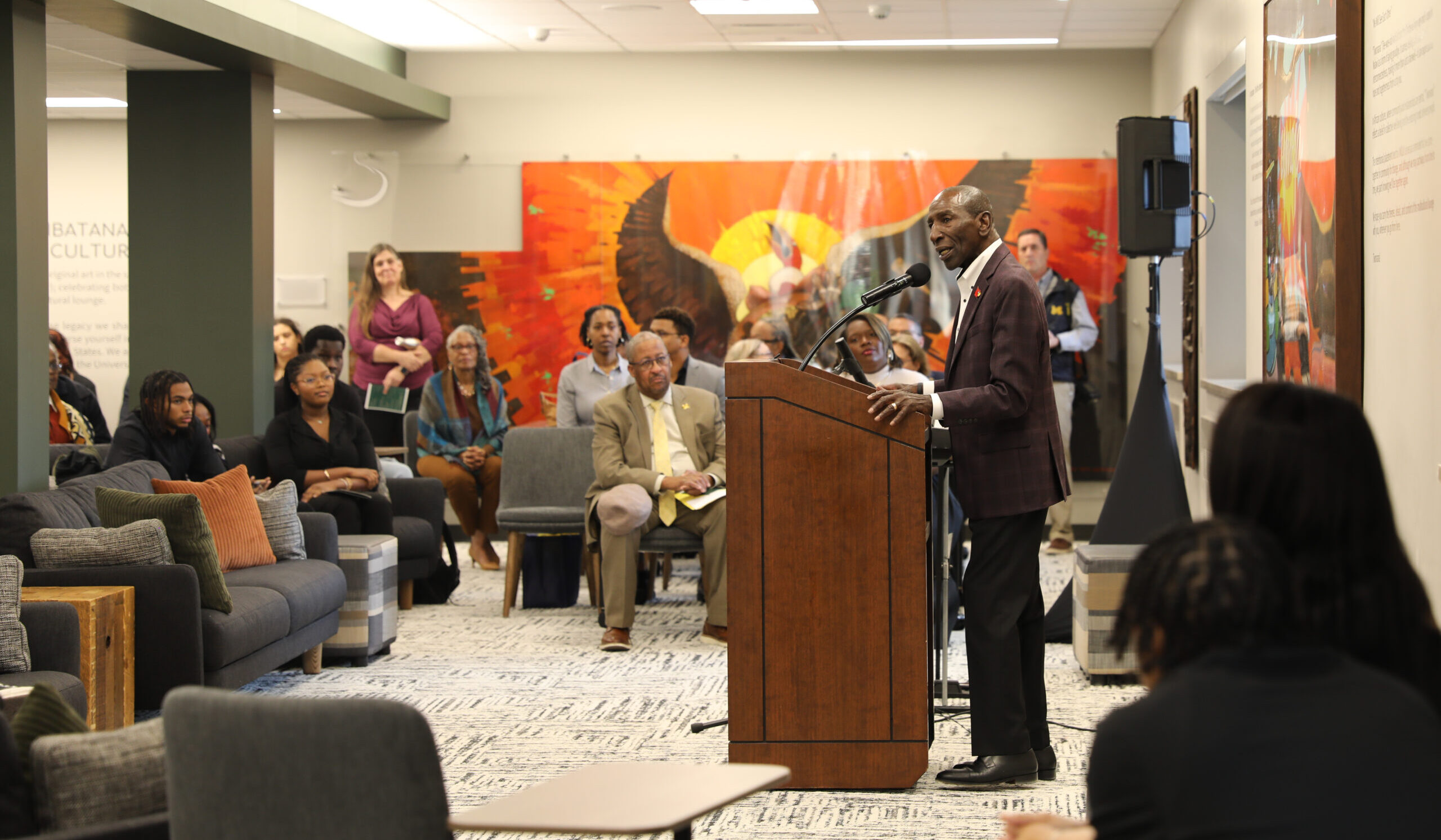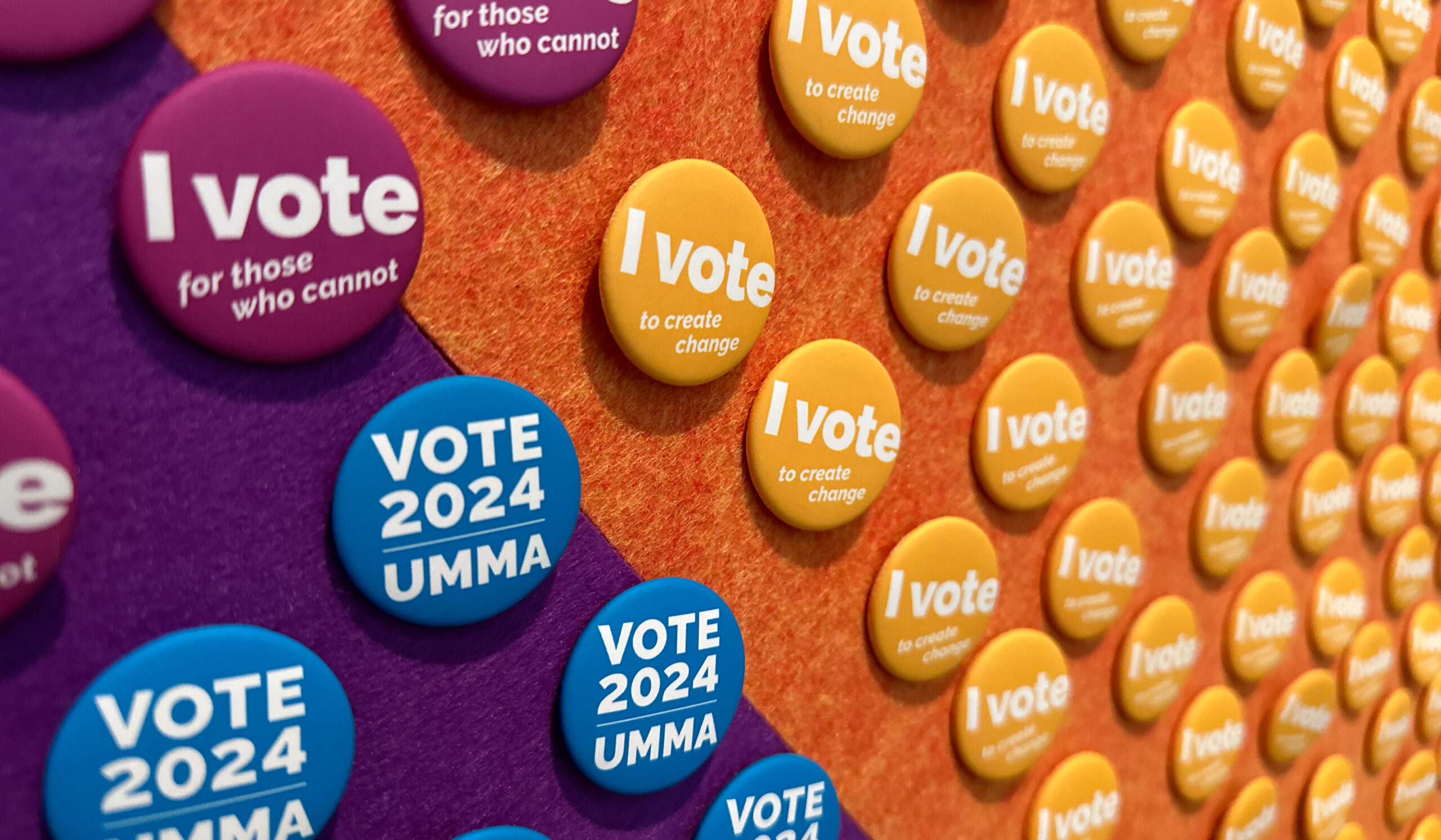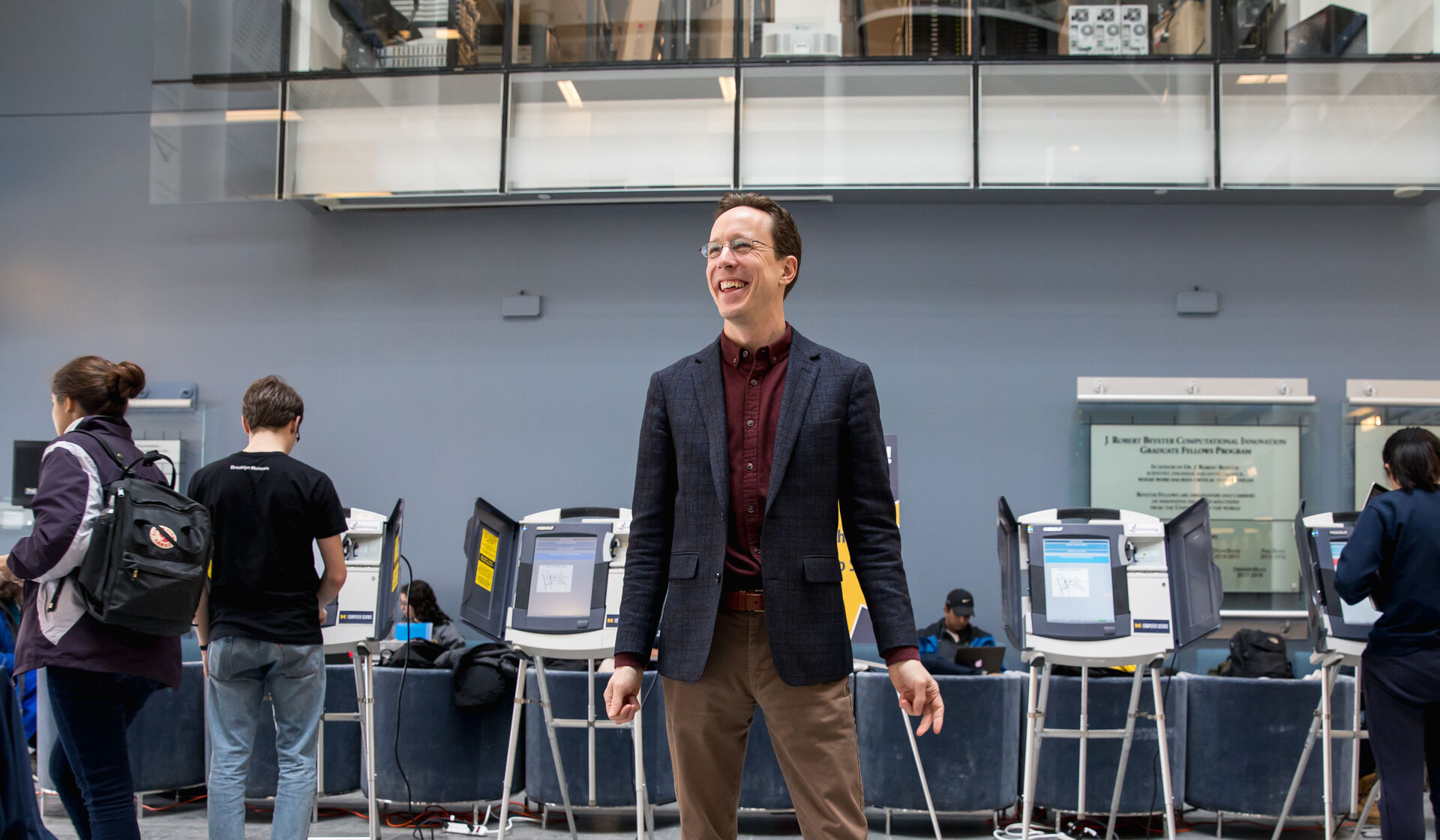The Afro American Multicultural Lounge opened in South Quad in 1972 as part of the University’s response to Black students demanding representation during the rise of the Black Action Movement, and has since served as a haven of support and community for University of Michigan students, showcasing artwork and storytelling that reflected Black and African experiences.
Now, after two years of renovations, the lounge has reopened with new artwork and furniture, and is larger than before, extending into the hallway on the lower level of South Quad with murals and the history of multicultural lounges on campus.
Renamed Ambatana, meaning “stick together,” the Afro American Multicultural Lounge is decorated with work from local Black artists including Jonathan Harris, Reggie Singleton, current U-M student Elsa Olander, and the late Jon Onye Lockard, a U-M professor of more than 46 years and a founding faculty member of the Department of Afroamerican and African Studies.
Lee A. Gill, ’74, who helped found the lounge as a student, remembers the great impact Lockard had on his life.
“I wouldn’t have made it through Michigan had it not been for him stopping me and saying, ‘You better study. You better focus. You just can’t be here in Michigan and not do the work.’ That changed my life. He became a mentor, a great friend. And walking in this lounge today just brought all the memories back about the impact he had on my life,” Gill said.
U-M Housing held a grand reopening for the lounge on Oct. 8, featuring a performance of “Let Them Hear You,” sung by Victor Ryan Robertson and accompanied on the piano by U-M student Joseph Oburu; poems written and performed by the co-presidents of the Urban Wordsmith Society; and brief speeches from Martino Harmon, the vice president of Student Life; Lockard’s family and friends; and Gill, who cut the ribbon for the grand re-opening.

Gill’s portrait adorns one of the pillars in Ambatana, along with a short biography and a quote of his that reads, “You’ve gotta push every day. You’ve gotta push for change, because things will often go back to normal when things seem to change. It’s like a pendulum, and you’ve got to keep moving forward.”
Gill is the vice president for institutional equity at the University of Louisville. Despite U-M’s historic decline in Black student enrollment, he still says “Michigan’s got it going on.”
“Our numbers have gone down. For minorities, our numbers, overall, in terms of who is going to grad school, who is engaging in post-graduate work, and so on. But that being said, I wouldn’t have graduated from any other school than the University of Michigan,” he said.
When Gill thinks back to when the lounge was founded, he didn’t imagine what it could become.
“When you’re a student and you’re in that age bracket of 19-20 years old, you’re thinking about that moment of student activism and what we’re fighting for that we thought was so important. As I reflect, I don’t think I had a thought beyond the moment of wanting to make change at that moment.
“But the beautiful thing about life — and this is part of being called an ‘elder’ I guess now — is that things evolve. And what this evolved to, is this and I had no thought that this would exist. That’s the beautiful thing about life. You can’t pigeonhole it. You can’t stop it. It moves on as a continuum,” he said.
As Gill looks around the new Ambatana, he sees the history of the room written on the walls, lessons from Black and African cultures, and artwork from the professor who impacted him as a student.
“It’s kind of good that maybe, sometimes, we don’t have a vision of how things will evolve, because this went beyond my vision.”
To learn more about multicultural lounges at U-M, check out our fall 2023 Spaces article, or find specific lounges through M Housing.
Katherine Fiorillo is the editor of Michigan Alum.





